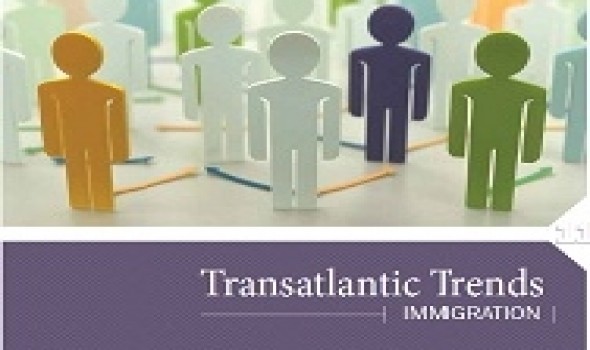Arab Spring impacting on immigration
Arab Spring impacting on immigration

A new public opinion survey shows that immigration and integration continued to be matters of intense policy discussion in both the United States and Europe. According to the fourth-annual Transatlantic Trends: Immigration survey of public opinion in the United States and five European countries (France, Germany, Italy, Spain, and the United Kingdom), slight majorities in the United States (53%) and Europe (52%) continue to view immigration as more of a problem than an opportunity. Most also maintain a negative view of government management of immigration, with 68% of Europeans and 73% of Americans believing that their government is doing a poor or very poor job. Nevertheless, most Americans (56%) and Europeans (52%) remain optimistic about immigrant integration, and majorities are interested in letting in more highly educated immigrants according to the survey. The survey also referred to one of the most important developments in international affairs, the so-called Arab Spring, for having a direct impact on immigration dynamics, with political upheaval leading to the movement of migrants within and out of North Africa and the Middle East. Italy complained of a lack of European burden-sharing on the flows of migrants, pressures most evident on the island of Lampedusa. Disagreements within Europe about the responsibility for dealing with migrants and refugees in the context of continuing economic crisis resulted in avid debates about the free movement area. The United Kingdom introduced an immigration cap for non-European Union economic migrants, with wide dispute over the feasibility of the cap and the impact for businesses and society. On the other side of the Atlantic, Americans debated the appropriate role of states and localities in immigration enforcement, as well as the possibilities of streamlining deportation procedures and providing legalization relief to illegal immigrants. Strong majorities in all countries polled in Europe supported European burden-sharing on the North African crisis. In addition, support for a greater European Union role in determining national immigration policies increased since last year, with rising numbers of European respondents opting for the European Union rather than their national governments to set immigrant admissions numbers for member countries. There was a clear preference for highly educated immigrants over immigrants with low educational levels. Read main findings of the survey http://trends.gmfus.org/immigration/key-findings/


